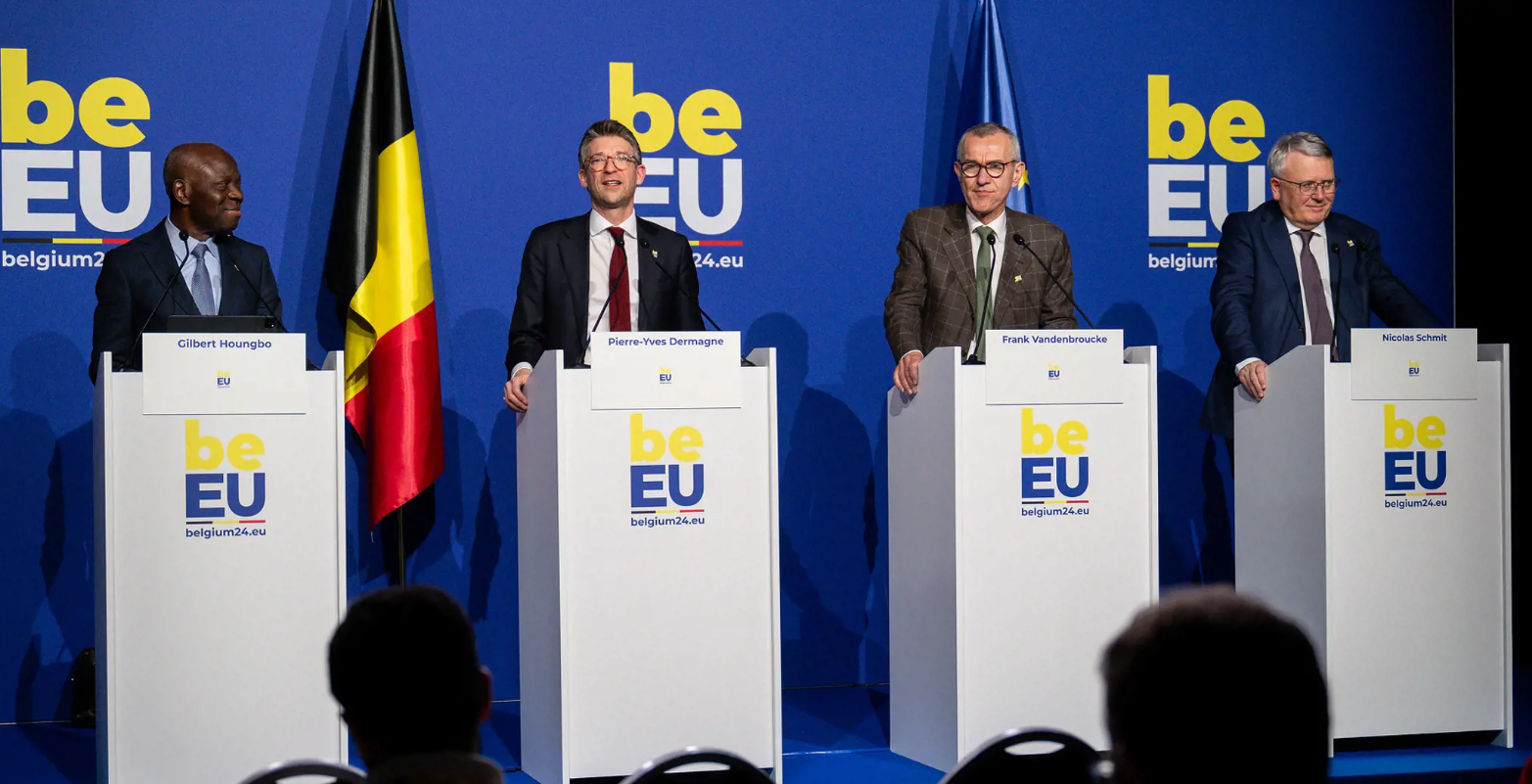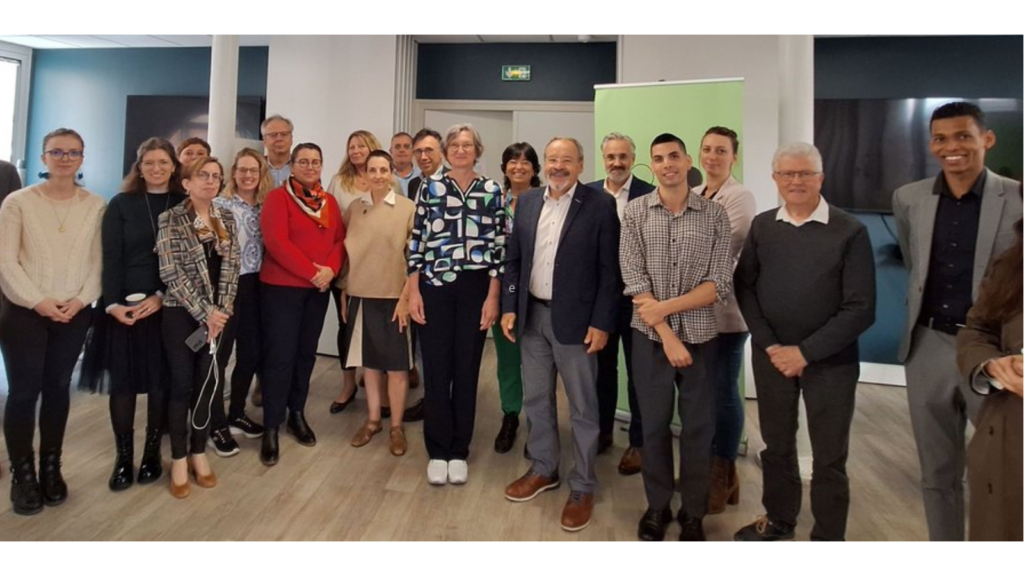In January 2024, the first ministerial meeting under the Belgian Presidency of the European Union brought together the Ministers for Employment and Social Affairs in the Walloon capital of Namur. During the first day, Ministers discussed how social policies should be reflected in the strategic agenda of the EU institutions after the European elections.
The so-called “EPSCO Informal” opened with a minute of silence for the late Jacques Delors. The first plenary session was chaired by Deputy Prime Minister Dermagne and introduced by European Commissioner Schmit, Deputy Prime Minister Vandenbroucke and OECD Director Scarpetta. Aside from the Ministers and their representatives from the EU Member States, the EFTA countries, Ukraine and Moldova, the social partners and civil society participated in the discussion on the main achievements of the previous years and what remains to be done. The debate underlined the importance of the European Pillar of Social Rights that was proclaimed in 2017 and the corresponding headline targets set in 2021.
Thanks to the Pillar and the corresponding Commission Action Plan, the current legislative period has seen a lot of EU activity in the social field, with the minimum wage directive, the pay transparency directive and the SURE initiative to support job retention schemes during the Covid pandemic as the most remarkable ones.
This Commission has taken many important steps in pushing the social agenda forward. From ensuring minimum wages provide a decent living, to giving children from a poor background a good start in life, to getting companies and workers to invest in lifelong learning for the jobs of tomorrow.
Commissioner Schmit
Delegations pointed to these successes and agreed that the Pillar should remain the compass in the years to come. However, new challenges, related to climate change, digitalisation, demographic evolution, the housing crisis and the deteriorating geopolitical environment require a vigorous answer and targeted action. Although these evolutions provide several opportunities, they also come with a risk of social exclusion, job polarisation and deteriorating wages and working conditions.
The Ministers, social partners and other delegates discussed what policies are needed to make labour markets and the social system, but also the economy overall, in the EU future-proof as well as more robust and resilient to unforeseen shocks, and how social dialogue can play a stronger role in this respect – thereby looking forward to the Val Duchesse Summit between the Commission and the social partners that will take place on 31 January. They underlined the importance of policies to reinforce equality, including gender equality, and for policies that leave no one behind. They agreed that concrete actions at the level of the EU and its Member States will be needed and supported the Belgian Presidency’s initiative to come forward with an interinstitutional declaration at the La Hulpe conference on the Social Pillar on 15 and 16 April.
Rear more here




